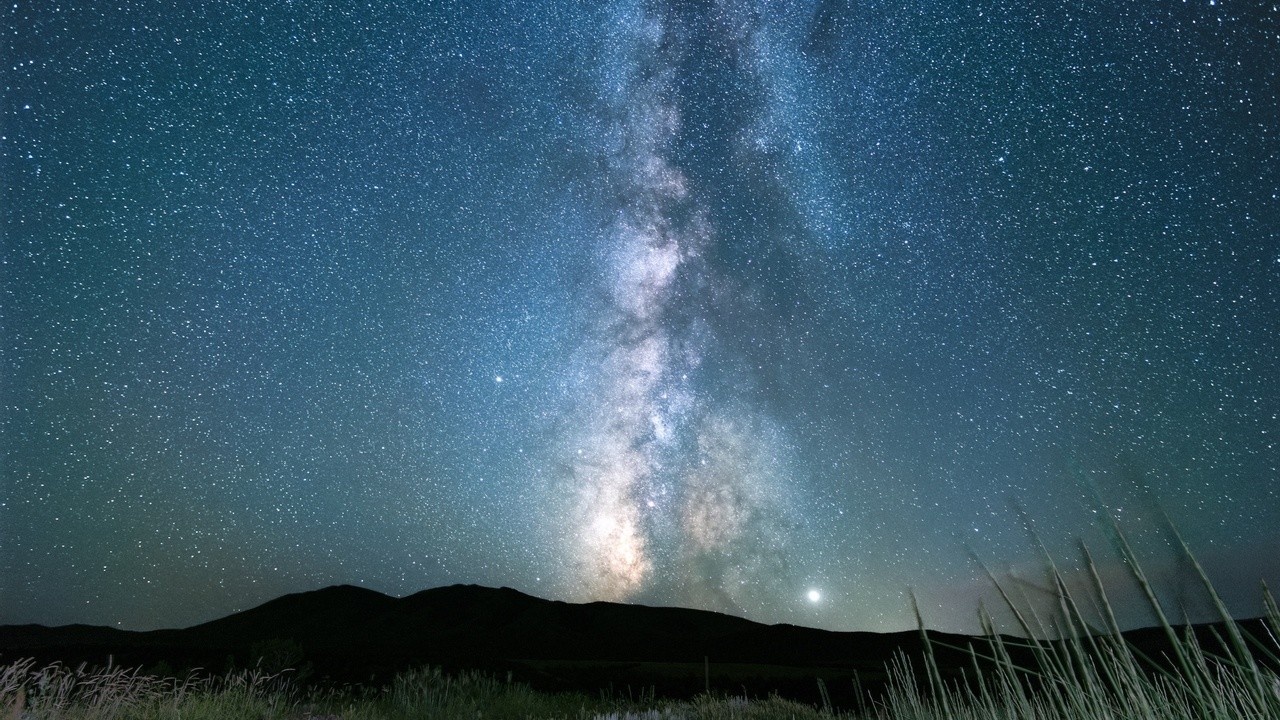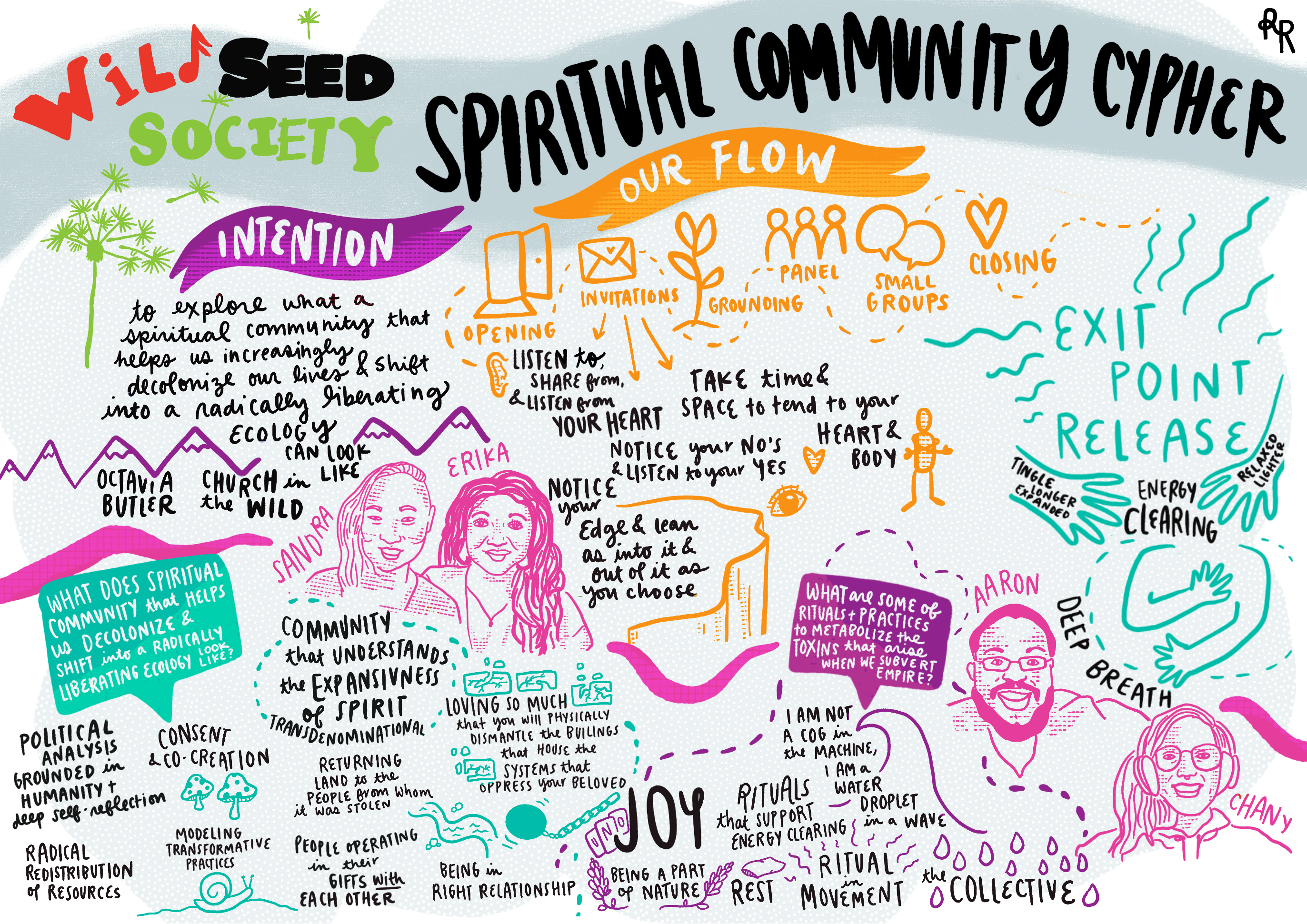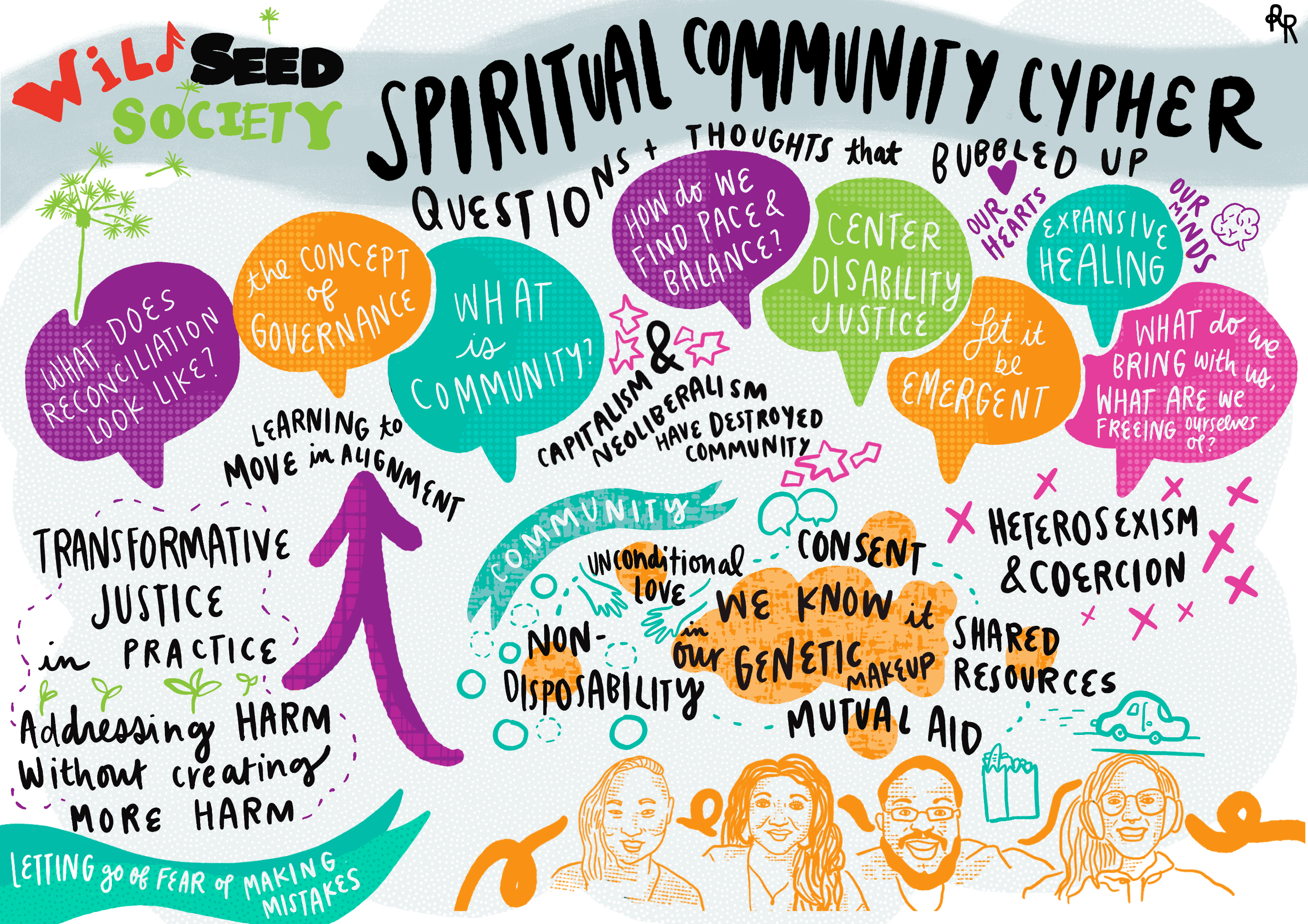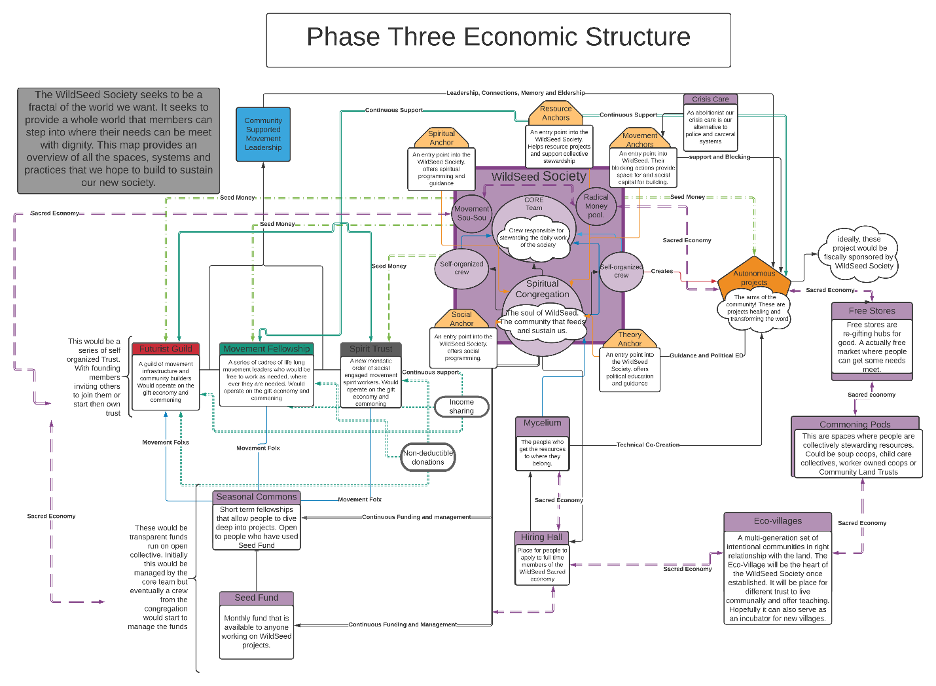A Reflection: WildSeed 2020 Part 3 - The Work Continues
Apr 16, 2021
Spiritual Work Continues
**This post is the third of three updates about Aaron Goggans' WildSeed work in the past year. Be sure to check out part 1 and part 2**
The other work of WildSeed was still very much in swing while Sandra and I were in Louisville. Erika continued to host her emotional emancipation sessions while preparing to go on sabbatical. Sandra was building on an idea that had been sparked (in part) by our work in Louisville. We thought that developing a pod system for Louisville could help support them through the stress of their organizing. We thought to model it after the kinship pods Erika, April and I developed for BLM DC.
We realized that groups needed both a relational reset and safe places to learn the skills and perspectives that allowed for trauma-informed mutual support to be normalized. Sandra worked with an amazing group of people (they call themselves the Half-Baked Crew) to develop a 10-week training program called Collective Care Pods. As Sandra was preparing for that, she also worked with Erika, Chany and me to brainstorm what a WildSeed Spiritual Community could look like.
We were all aligned in that we wanted all of our work to be firmly rooted in spirit and spiritual community. After our initial conversation, it became clear that there were some beautiful possibilities at the intersection of our different ways of looking at and engaging with spirit.
We started by inviting people who’d worked with one of us before, to explore what kind of spiritual community we could build with WildSeed. We got grounded together with a spiritual practice, then Chany led Erika, Sandra and I through a virtual fishbowl where the community witnessed us answering a series of questions. Chief among them was, “How may we help people metabolize (in the Buddhist sense of turning a poison into a medicine) the toxins that arise when subverting an empire?”
It provided the kind of conversation that we immediately knew needed to be at the heart and soul of the WildSeed Society.
We realized that Sandra works with folx at the beginning of their journeys. She helps hold space for people to be present with what is happening within themselves emotionally. She then gently teaches them tools for everyday self-love and self-care. Over time we helped people get in touch with where they hurt, and supported them through recognizing that they deserve to feel joy and be supported.
Erika picks up with people from there. She works with folx to develop politicized language for the systems and people who enabled or caused the hurts that people are experiencing. She then helps people identify the lies they have been telling about themselves, and the world, in response to that pain. Lastly, we work with people to vision, name and finally step into the truth of who they are. That is, in a nutshell, the praxis of unchained visioning. Identify the lie, understand the system of oppression that perpetuates it, identity the truth and live into that truth.
From there, I help people vision what kinds of worlds we could build if everyone lived into their truth. This also means understanding the social relationships and institutions we rely on that are incapable with these new truths. I walk with people as we vision new ways to meet our needs, that are aligned with our new truths we understand about ourselves and — by extension — new truths about what it really means to be human.
The two visioning sessions we held in October were nothing short of magical! I believe they helped give me a burst of energy in my last few weeks of supporting Louisville, without which I might have crashed.


Post-Election Infrastructure Building
I came back from Louisville a week before the 2020 election. I wanted to make sure that I was around D.C to support my sister and BLM DC if anything happened. We brought the CRT together right before my departure, to debrief Louisville and see what we thought might be needed based on election results. Again, much of this prep work is confidential but we tried to have at least a preliminary plan for every conceivable outcome.
DC had seen a stark escalation in far-right activity over the previous months, including a Proud Boy invasion in which the local media falsely claimed that BLM DC activists had stabbed some Nazi’s. It became clear in a way that we had expected, but couldn’t prepare for that the police and the Proud Boys were unapologetically coordinating. It would later become clear that the leader of the Proud Boys was an FBI informant, and many in the department felt that the militia was on their “side.”
This was a time of massive overwhelm for BLM DC, as many things were happening at once. WildSeed tried to support them in many ways, including building out administrative support. This culminated in Chany and I launching the Mycelium which was the long planned liberatory-back-of-the-house support team. We started with a broad application process in which about 60 people expressed interest for five to ten slots. It was pretty exciting to get such a big response with little outreach for a kinda nebulous position.
We quickly realized that we wanted to really focus on the cohort experience so that folks would be able to enter WildSeed as a team. We hosted two “hiring halls” (essentially open houses) where we explained the cohort and WildSeed in general, in more detail. Then we invited everyone who came to the hiring halls, to apply to the first cohort.
We got a lot of great applications, and ultimately pulled together a team of six people for our first cohort.
Even as we were pulling this cohort together, it became clear the BLM DC would need support long before the six-month cohort was over. Before we had our first Mycelium meeting, we asked two of the members if they would be willing to support April and BLM DC while also going through the Mycelium cohort. Fortunately, the two amazing Black women agreed and we were able to build out a support team for April. Chany really took charge of this process and began running our autonomous project support work with this new team.
While all this administrative capacity was being built, Sandra and I were working with our tax lawyer to figure out how to incorporate all of this legally. How does one explain to the empire that you are building a spiritual community whose sole purpose is to subvert it?
We spent a really long time coalescing all that we were experimenting with and planning a meta-legal structure that we thought could handle it all. We began looking into all of the esoteric versions of non-profit laws like 501(d), to figure out how we could build a society at the intersection of spiritual liberation, social transformation and economic solidarity.
The most challenging part was trying to figure out how we sustain all this work we were building out in anti-capitalist ways. We knew that the revolution would not be funded because we all had experiences where so-called “non-profit best practices” began to guide political work. We also knew that we wanted to get past the logic of capital itself, that is, the idea that anyone (a boss or politburo leader) can tell a work what to do with his/her/their time.
This is, not surprisingly, now a usual tax under U.S. tax law. It took dozens of hours explaining our beliefs and plans to our wonderful team to come up with a comprehensive plan. We started to call that plan the Sacred Economy, which is a bit outside the scope of this overview but is in many ways the culmination of all our work and thinking this past year.

Lessons Learned
- I learned how to more effectively and efficiently balance between having a particular vision and ceding complete control.
- Got better at learning how to mitigate harm and manage scope, simultaneously, instead of trying to control processes or outcomes.
- Learned that some mistakes are not possible for me to stop in a given moment.
- Leaned into informing people about possible consequences and trusting them to work it out for themselves.
- If you want to support uprisings you have to be willing to put in the time to build trust, which means showing up consistently over an extended period of time.
- The culture of forced productivity can destroy your work.
- Never move so fast that we can’t slow down and re-evaluate if we are in alignment with our values.
- The impacts of the police state vary wildly from location to location.
- Oppression thrives in places that get little media attention and support.
Things We Want to Incorporate Into WildSeed From What Was Learned In Louisville:
- Holding both Emergence AND discipline.
- You have to hold onto core values while being flexible as to what those values look like in a specific context.
- We must invest in our own security culture.
- Louisville is in some ways, about nine months ahead of the rest of the country.
- We will all experience in year or so, what Louisville went through in 2020.
- We need to learn lessons from Louisville and prepare to deal with similar threats.
- Louisville is in some ways, about nine months ahead of the rest of the country.
- We must build-out safety and wellness plans before we send anyone on field work.
- We need to have concrete processes for how we move money, what we spend money on and why.
- Never send people into long-term stressful situation without a partner.
- If we don’t have capacity to send a team, then we don’t have capacity to support.
- We must mandate resting before and after deployments or big actions.
Aaron Goggans is the Dream Gardener at the WildSeed Society. He's a writer, facilitator, organizer and architect of the future. Aaron builds movement infrastructure before people know they need it and helps them achieve things even he never imagined were possible. Aaron is a co-creator of Black Lives Matter: DC and a handful of other projects that have made liberatory marks on the world.
Stay Connected with WildSeed Society!
Join our mailing list to receive the latest updates and offerings.
We hate SPAM. We will never sell your information for any reason.

